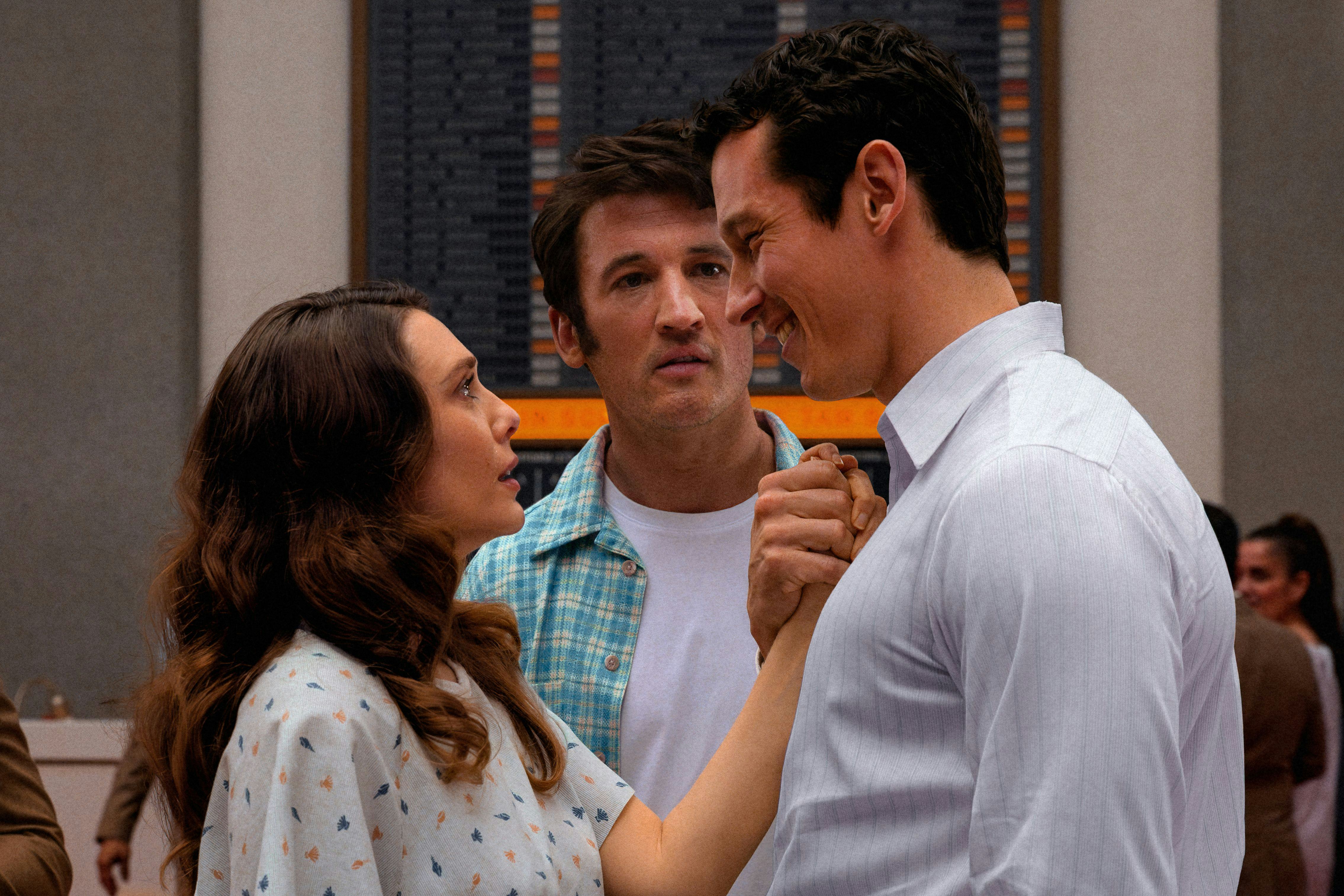
The afterlife looks a little different than you might expect in David Freyne’s Eternity.
The pearly gates are swapped for a busy midcentury train station, where harried souls rush to their own personal “eternities” — the paradise where they must spend, well, eternity. Among those countless souls are Joan (Elizabeth Olsen), Larry (Miles Teller), and Luke (Callum Turner), three people stuck in an unlikely dilemma. Joan has just passed away at 92, after being happily married to Larry for 60 years. But when she arrives in the afterlife, she finds that not only is Larry waiting for her, but so is her first husband, Luke, who perished in battle. Now, Joan must choose which husband to spend eternity with.
“That idea of a woman having to choose between that first great love and that last love just felt like such an extraordinary idea, something that I can’t believe hadn’t existed already,” director David Freyne tells Inverse.
“I had so many ideas for it and for the world that I wanted to build around it.”
Freyne encountered the idea when he happened upon the script by Patrick Cunnane a year before it was featured on the Black List, an annual list of the most promising new screenplays. “I just instantly fell in love with the potential of the script,” Freyne says. “I had so many ideas for it and for the world that I wanted to build around it.”
Freyne, who had helmed a couple of smaller indie films like the zombie thriller The Cured, didn’t expect to get the gig. “I was probably the smallest director they were meeting,” Freyne says. But Cunnane and the producers loved Freyne’s vision, and he was given the chance to rewrite the script and take the reins as director. Despite this being Freyne’s biggest production yet, and one with buzzy stars like Olsen, Teller, and Turner, he had confidence in the premise’s strength. So he began crafting his distinct, mid-century modern vision of the afterlife, and the very specific dilemmas that come with choosing your own eternity.
“I think [the script] I started with was so amazing and so inspiring,” Freyne says. “Ideas just flooded out of me, how I wanted the world to look and how I wanted these characters to feel. It really was quite an easy process.”
Inverse spoke with Freyne about the real-life buildings that inspired his afterlife, what Billy Wilder has to do with it all, and, spoiler alert, why Eternity ends the way it does.
This interview has been edited for clarity and brevity.
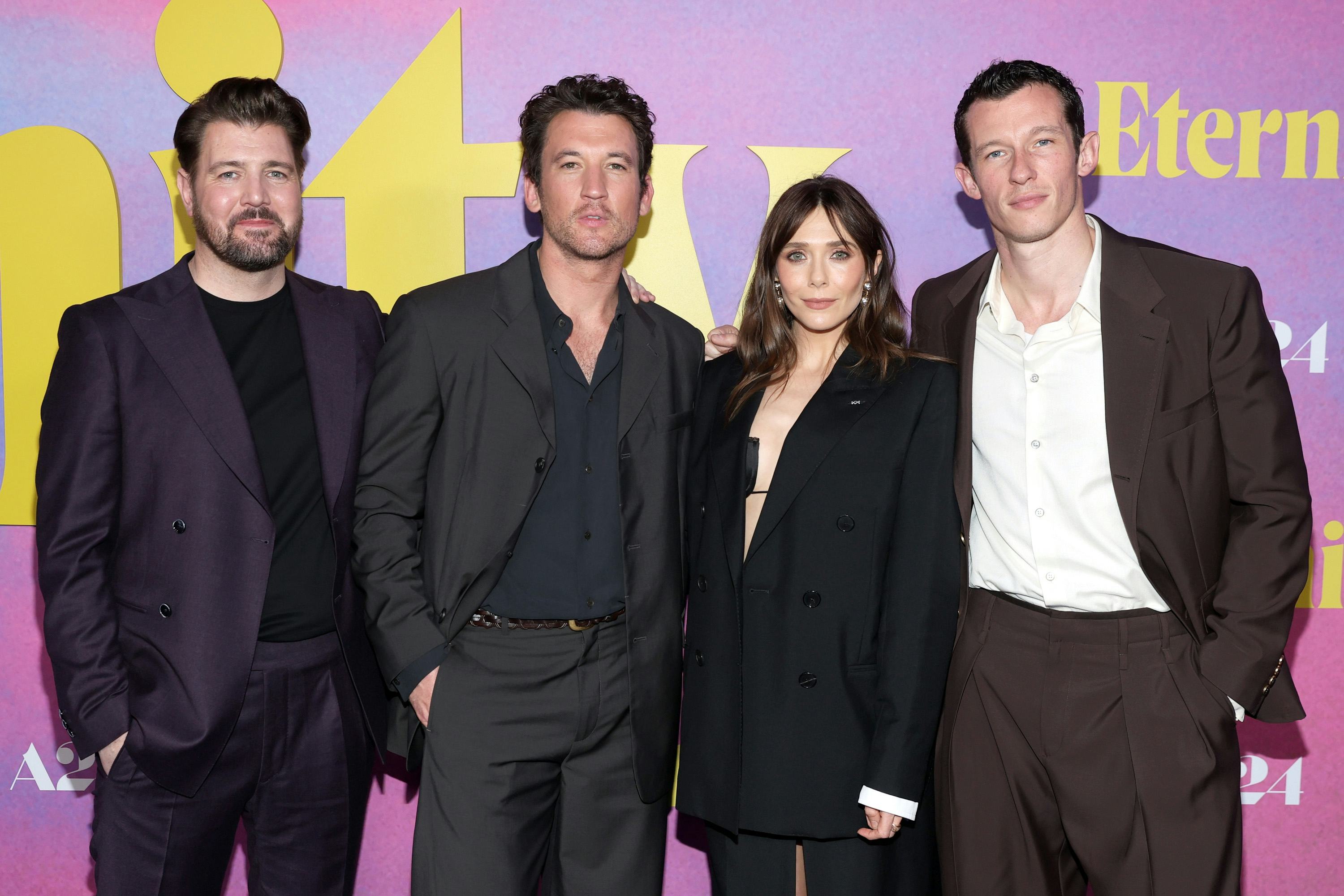
This world, and the mid-century design of the junction, is so unique, and immediately sets the tone for the movie. Where did that look come from?
I instantly wanted it to feel like a combination of the Barbican in London and the Moriyama Library in Toronto, this ruthless mid-century design. The idea is that they did a redesign of the junction recently, which for them was the ’60s, and that’s the world we’re in. And making it feel like that 1960s chaotic trade floor/train station, a really amazing, crazy, chaotic world in which Joan’s dilemma can take place. [It] felt like a lovely melting pot [and] pressure cooker for her to exist in.
I did a big lookbook when I first started, when I presented my idea to the producers. And it was references to the architecture I loved, the films I loved, from Powell and Pressburger and Singin’ in the Rain and [Billy] Wilder, and [Ernst] Lubitsch, and Preston Sturges films. And all those references fed into how myself and Zazu Meyers, my incredible production designer, built this set and this world.
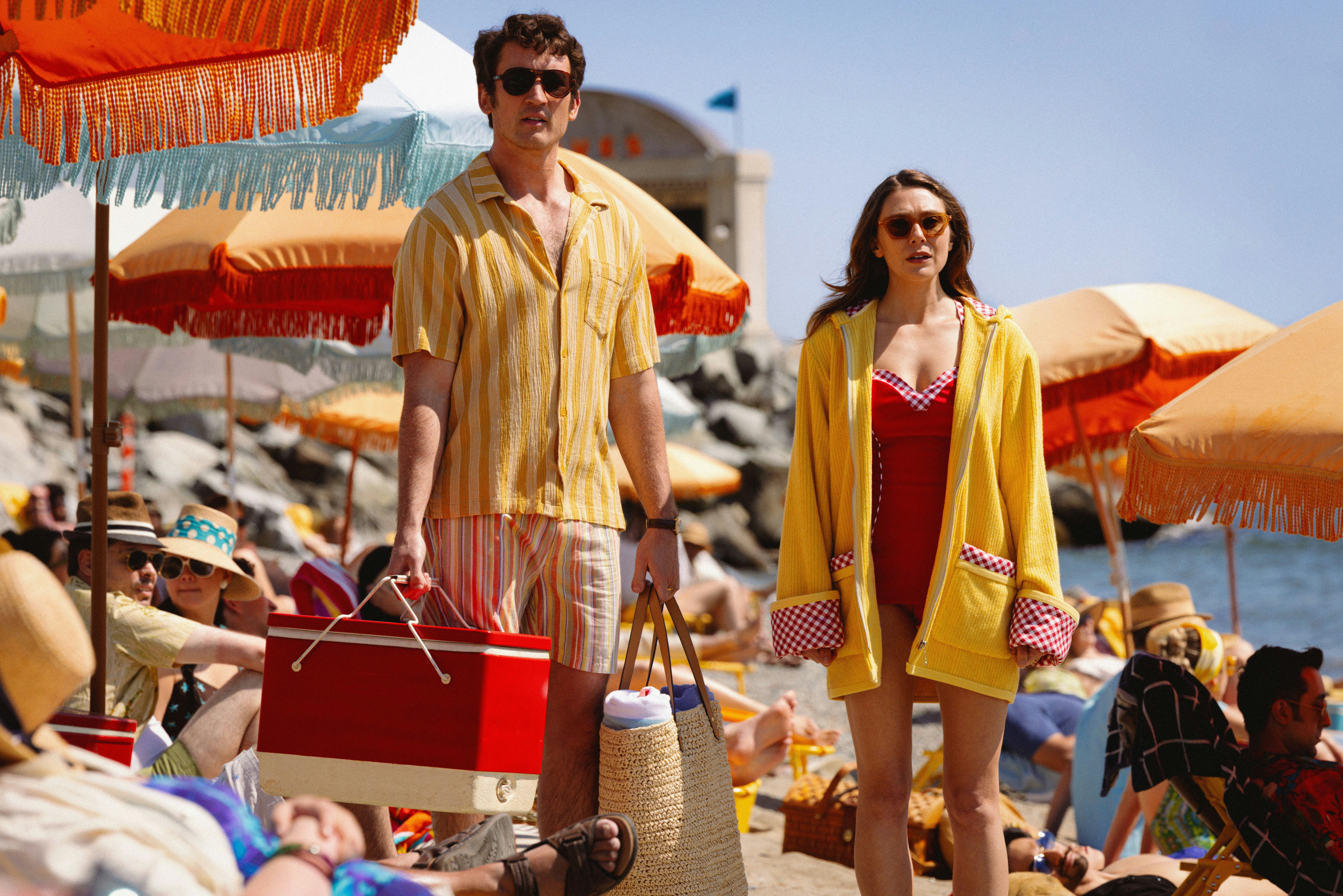
And then the most fun was creating all the different eternities and writing them and writing those taglines. And obviously they’re jokes, but for me, behind each of those jokes are questions about what is happiness to us. What would you choose as an eternity?
I think a lot of people would choose a man-free world because men aren’t always nice, or something crazy like “Anything Goes” World, or Capitalist World, or Studio 54 World. In each of those worlds is some sort of essential truth or essential idea of happiness. And so that was so much fun, building that place for our characters to exist in.
“The idea that you can laugh one minute and cry the next.”
You mentioned Powell and Pressburger. Was A Matter of Life and Death a big inspiration for you? Did you look to other films and TV shows that had similar depictions of the afterlife, like The Good Place or Coco?
A Matter of Life and Death was the big touchstone. I wanted to do a combination of A Matter of Life and Death and The Apartment. I studied production design in college, and I did my master’s thesis on A Matter of Life and Death. So doing this was a real full-circle moment for me.
It really did feel like all my dreams came true in getting to create my own afterlife and a film that exists in two worlds. You’re right, there’s a big history of films set in an afterlife, and I wanted to do that justice. And I think going back to Lubitsch’s Heaven Can Wait was a huge inspiration for me, and Defending Your Life, of course, by the genius Al Brooks, was amazing.
And then more than just the world that I wanted to create, I think the tone was more important. And I think the tone of films by Wilder and Sturges, great screwball romantic comedies that deal with big, heavy subjects, but with such a lightness of touch, I really wanted to bring that spirit into this film.
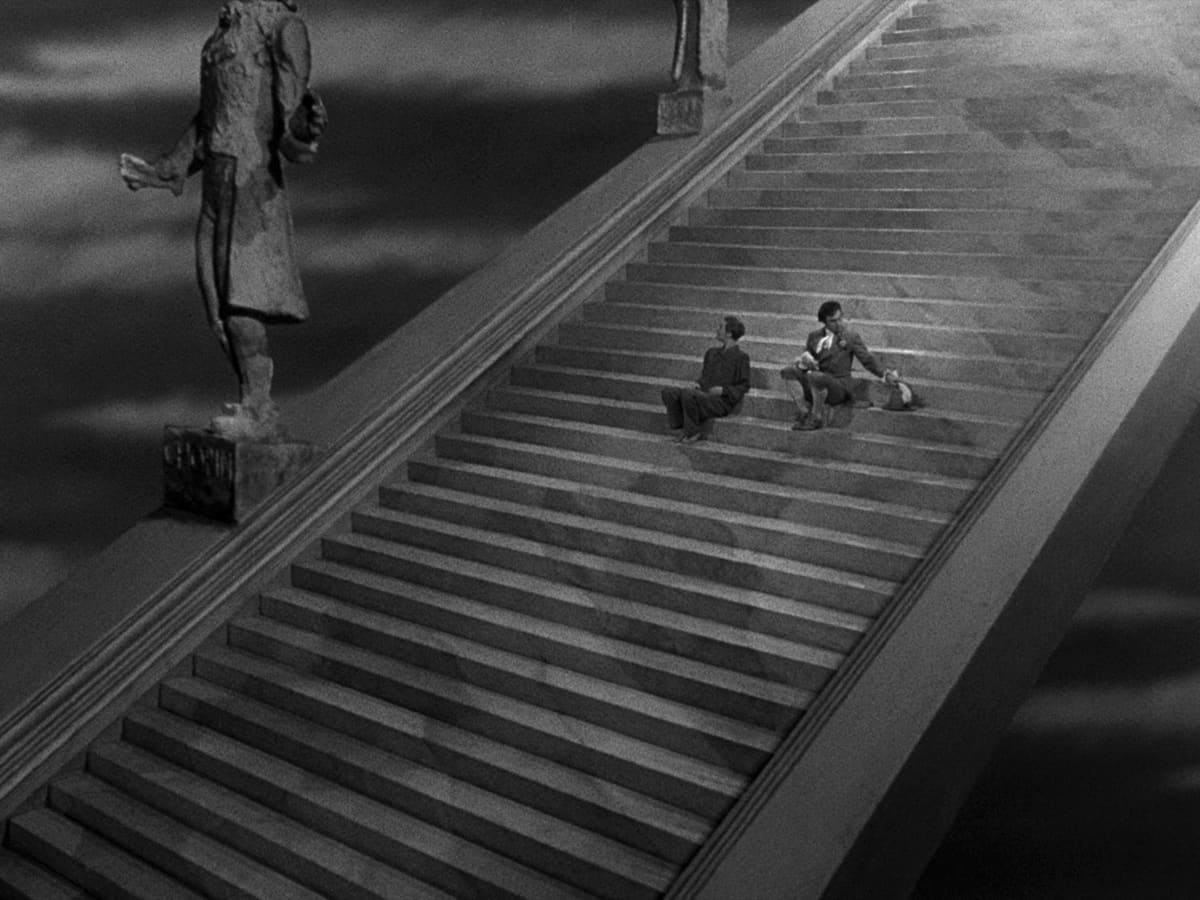
There’s always a degree of sadness underneath the screwball tone of Billy Wilder movies. There’s always suicide or the contemplation of it.
Yeah, thankfully we have none of that in our film. But I think they deal with very serious topics. They were never afraid to go to dark places, but they also were never afraid to go for the biggest laughs and the most heartwarming moments.
And I think there’s a sincerity in those films that we really wanted to bring to this film, and allowing the biggest laughs to be right beside the most sad, cathartic, and honest pieces. The idea that you can laugh one minute and cry the next.
I think that’s something that I’m really inspired to do with my work, and that a cast like Lizzy and Miles and Callum can do so brilliantly. And getting to work with them in that was an extraordinary gift.
Can you talk about the process of casting your actors, and the importance of nailing the chemistry between the three of them?
Most of my anxiety in making this film was in casting it right. I think there’s a real holy grail of an actor who can be really hilarious and really nuanced and really moving, and finding those was, for me, the biggest challenge.
I always wanted Lizzy and Miles for this from day one when I first read the script. They’re actors I believe, and know now, can do anything. But I don’t think we’ve necessarily associated them with comedy, certainly not recently. So getting to have them show a different side of themselves is always really exciting for me as a director. I just assumed we wouldn’t get them, but we tried. It’s just incredible that they responded to the scripts.
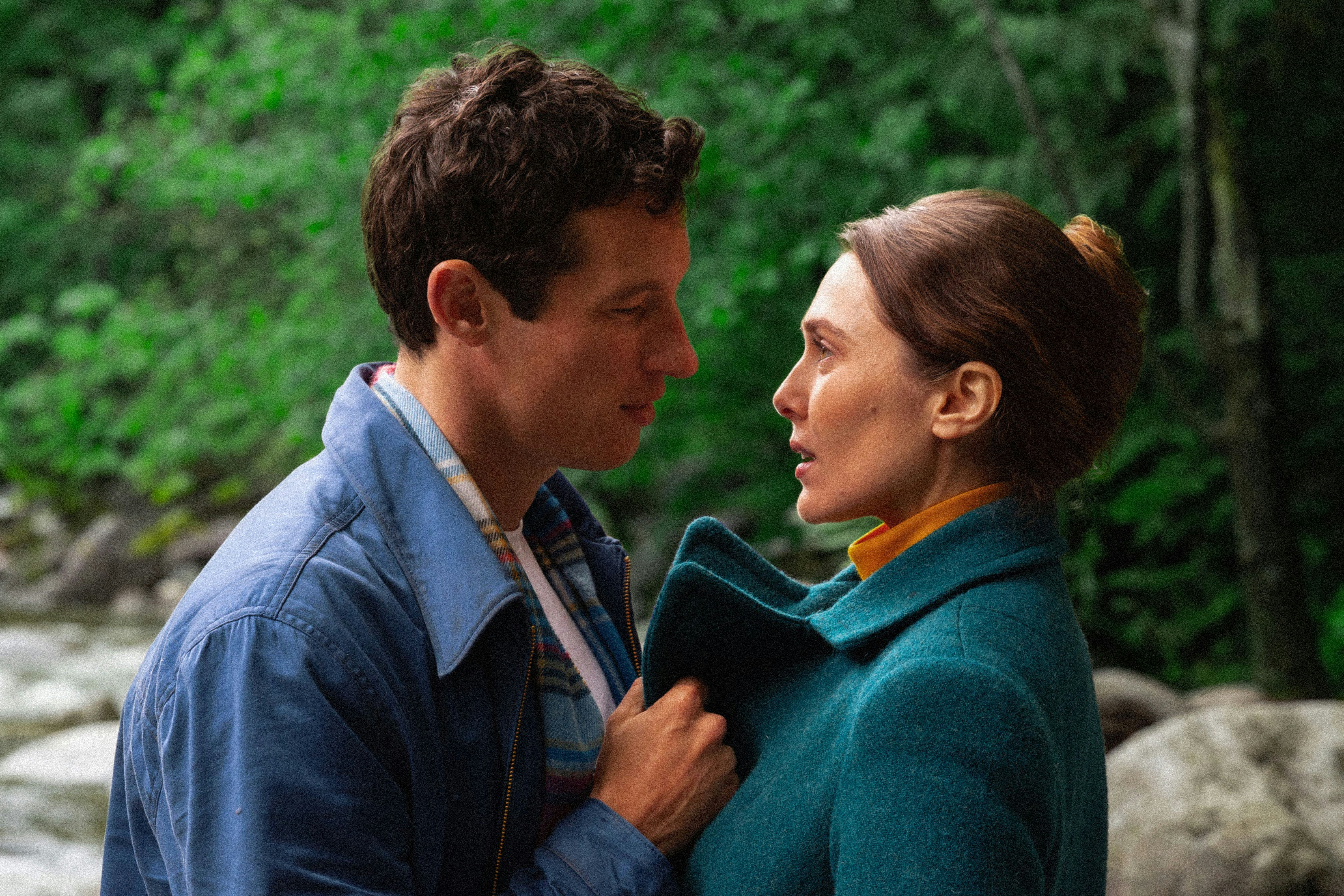
Callum, I met for coffee in London before Masters of the Air came out. And just instantly, before I finished my flat white, was convinced he was Luke. In the wrong hands, that role is just the matinee idol. And he really understood the insecurities I wanted and the layers I wanted for that character, because it really is a three-hander.
And then once you get your cast, the next bit of insecurity is, will they get on? Will they have chemistry? And we met up several times in pre-production and had conversations. The three of us had lunches and coffees and just chatted about it. And so much of that is just talking about what is happiness to us, what is love to us, what are our relationships like, what do we aspire to in our lives, more than having rehearsals.
And by the end of that, you could feel them developing their bonds together and developing that friendship and relationship. My favorite day on set was the day we had all five of my actors together for the first time, and everybody had goosebumps behind the camera. It was just electric. They were like schoolchildren together. It was amazing. And that’s when you know you have a film, because they were so brilliant and had such a respect for each other.
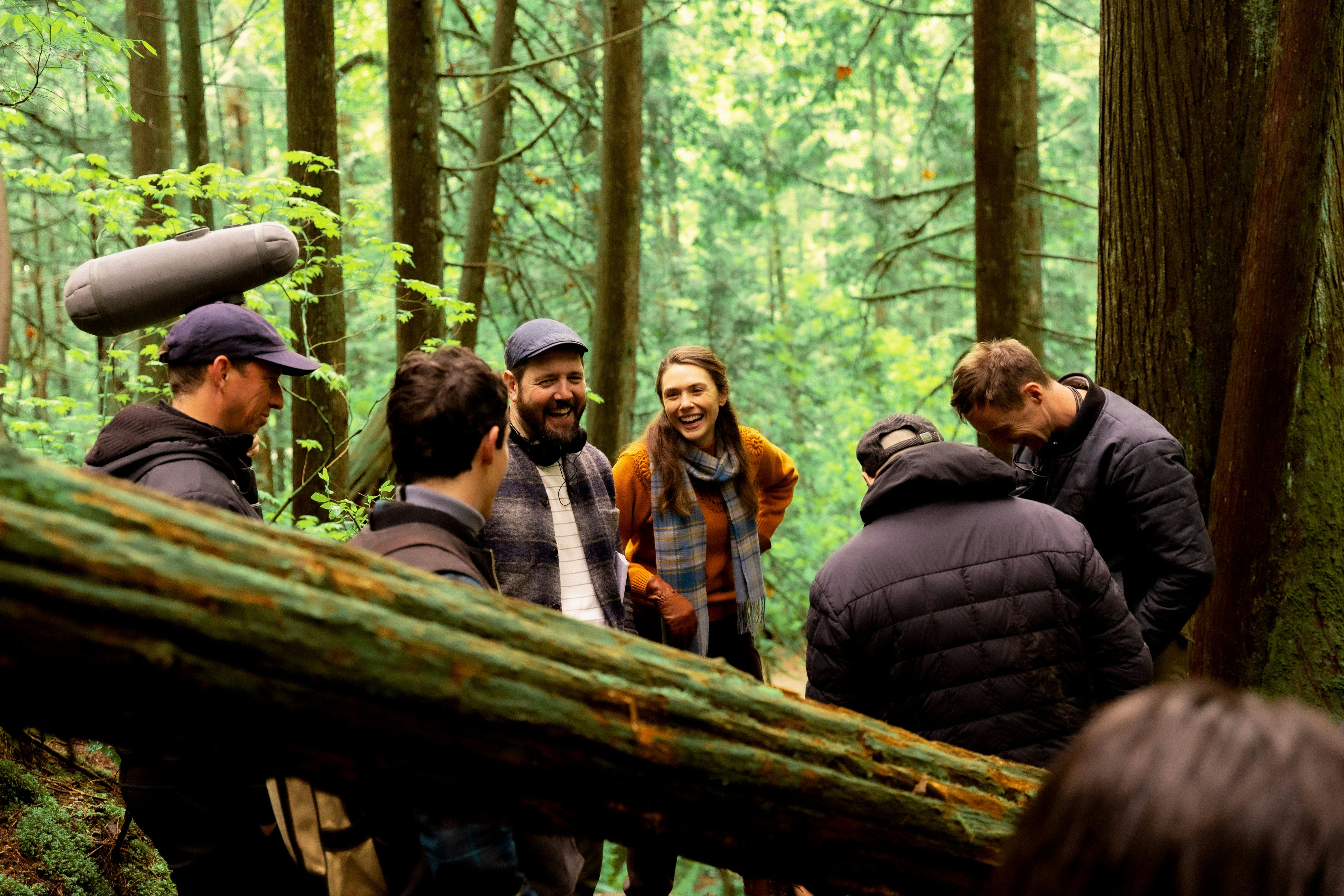
Was there any moment where your cast surprised you? Because it’s a comedy, did you allow a little bit more freedom for improvisation? Or was it so important to nail that specific tone that you wanted to stick closer to the script?
They surprise me all the time. For me, it’s really important to keep a script open like it’s a blueprint, and they were really faithful to the script. But in talking to them in pre-production, in getting to know them and discussing these big themes, I ended up writing more scenes for them and changing scenes just to respond to them naturally.
And I would very often go home inspired and write more lines for all the actors, and come in the next morning to try things out. We would always leave a little room for ad-libbing. I think one of my favorite bits of ad-libbing was the flipping-the-coin scene. Miles had the brilliant idea of just having a pretzel in his pocket, and that was amazing. And everyone just jumped on that and responded to that in the moment.
I think the one that really jumps out is, I remember having a conversation with Miles about how he loved the Dean Martin scene because it showed how much Larry loves Joan and how much he would do for her. And then I kept thinking, “Is there another moment in the script that we could have where Larry shows his love for Joan?” Then it just came to me: squatting. And we have this amazing squatting scene, which I think is so funny and so romantic. And that just came from a conversation with Miles, and that set my brain going. And that happens all the time with this cast.
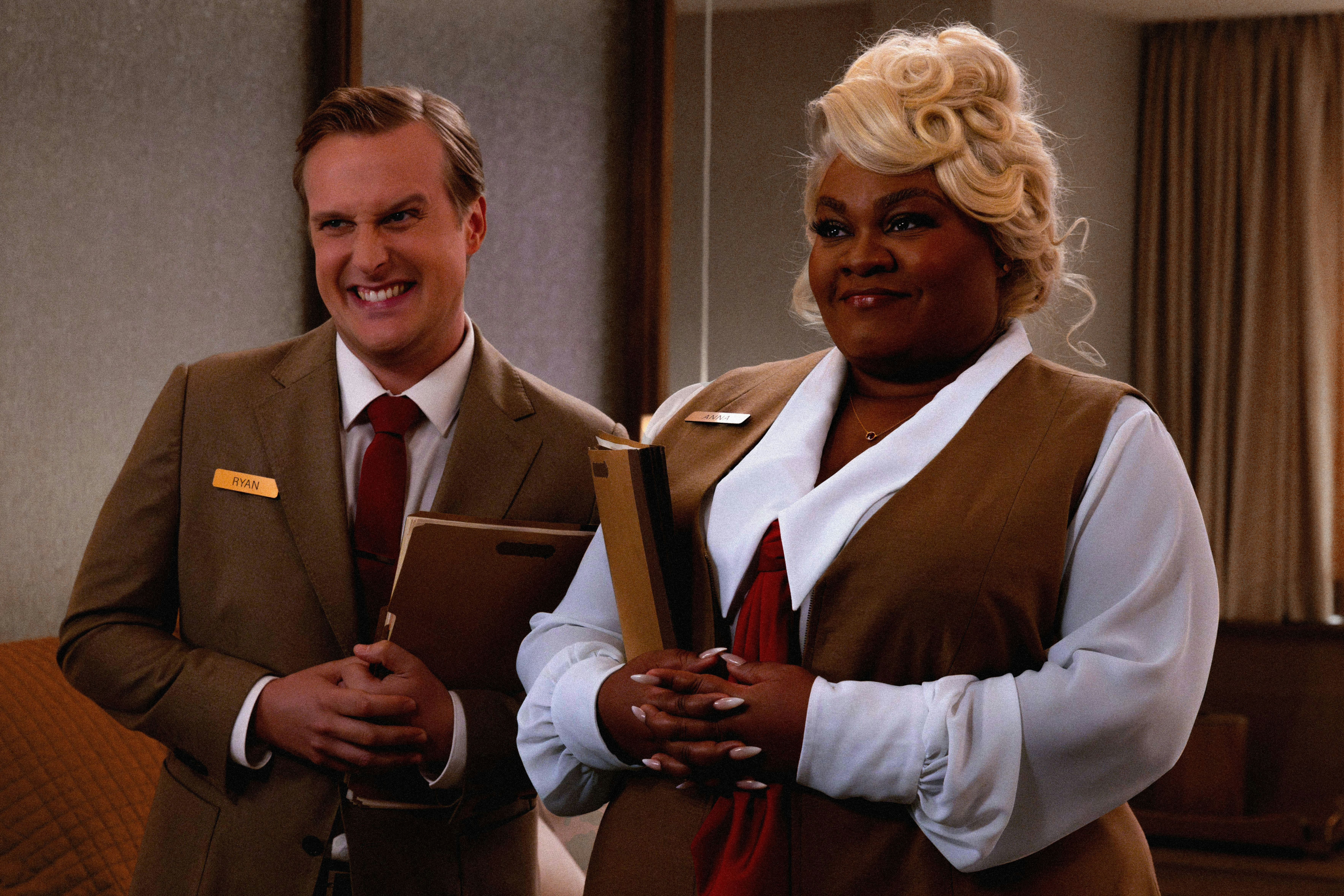
And then with Da'Vine [Joy Randolph] and John [Early]’s characters, they were always there on the page, but they really made them sing. They really do steal a lot of their scenes. And during production, I wrote a scene, it’s the only scene in the film where it’s just them together, just walking into this junction as it wakes up in the morning and the lights turn on. And it’s just a beautiful breath in the film, and it’s a moment for these characters to contemplate their roles in this place and what they do and the importance of that. And I thought that was gorgeous. And that came just from getting to know them and seeing how brilliant they are together and wanting more of them.
I always responded to them, and they constantly inspired me in rewriting and keeping the script open throughout the process.
“It’s a great ordinary love.”
I wanted to ask about the ending. How important was it for you to have the winner, so to speak, be the one who represents the small, mundane moments of happiness in life? And how did that conclusion come about differently in the original script?
The ending was always going to be Larry and Joan. I think how we got there changed dramatically. It was very important for me that the last act was Joan’s, and it was her getting back to him. In the original, it was him going to her, and being at the bar and everything — that changed entirely.
I think it was really important for me in this that we weren’t saying the love she had with Luke wasn’t great and true and honest. But it’s that she is a 92-year-old woman at heart, even though she’s in this beautiful Lizzy body, and that she’s a different person. And she’s spent this time, and no matter how much you want, you can’t go back. And the love she had with Larry has gone through so many phases, and there’s an ease with that that I think, for me, represents true love.
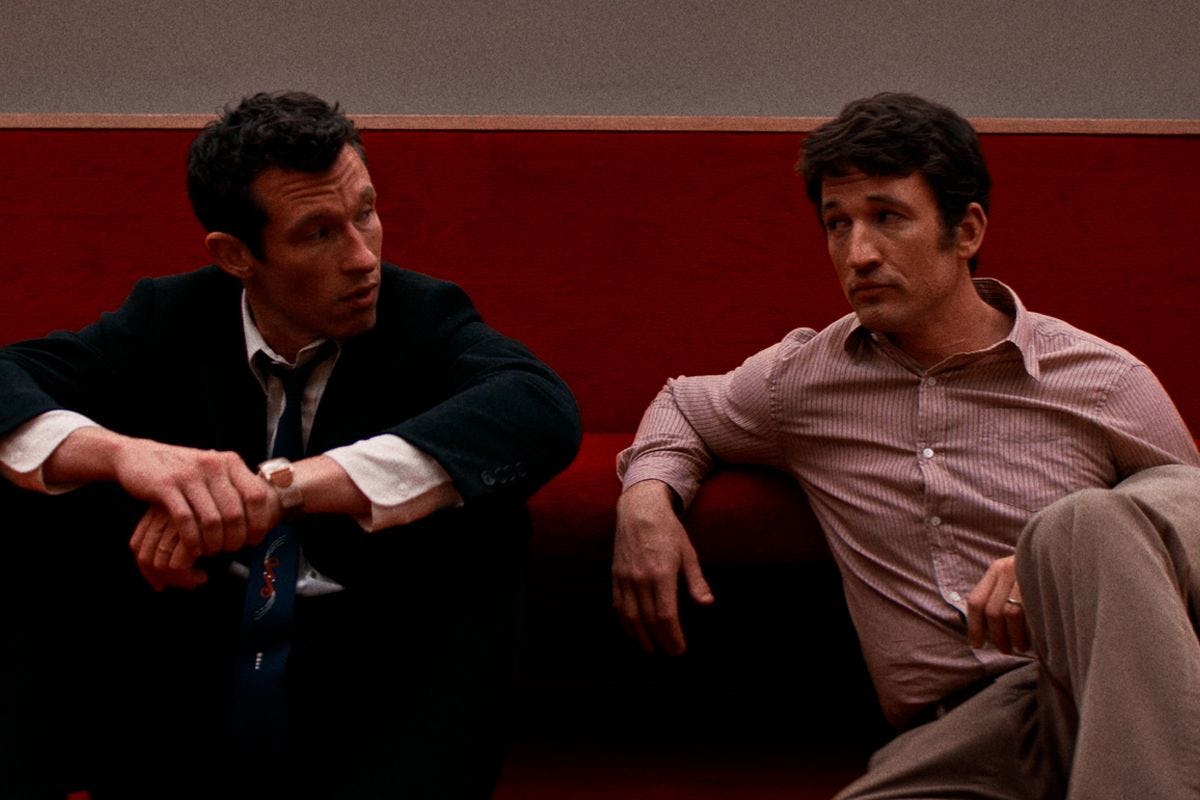
Like I always say, I love bickering with my partner. There’s a complete peace you have with somebody when you can just have an argument in a car with them, that you’re not worried in any way. And I think that’s what Larry and Joan represented to me. It’s a great ordinary love. I think Anna says that at one point in the script. And I think that was just a really lovely thing to celebrate.
But I think the film, I hope, celebrates so many different types of love. I think Luke was a great love. Larry is a great love. Karen’s character going to fake Paris to have a laugh, that’s a great love, celebrating yourself.
What’s been really amazing is having conversations with people after screenings, they’re talking about all these different phases in their lives, from first loves to last loves to parents. It’s bringing up so much for people, and I think it’s really making people celebrate the different relationships they’ve had. And that’s what I hope they take from it.
Eternity is playing in theaters now.







